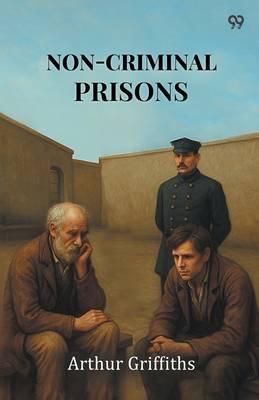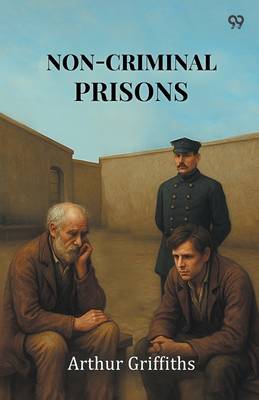
- Afhalen na 1 uur in een winkel met voorraad
- Gratis thuislevering in België vanaf € 30
- Ruim aanbod met 7 miljoen producten
- Afhalen na 1 uur in een winkel met voorraad
- Gratis thuislevering in België vanaf € 30
- Ruim aanbod met 7 miljoen producten
Zoeken
Omschrijving
Non-criminal prisons examines the history and social consequences of confining individuals in penal institutions despite the absence of criminal convictions. Focusing on English debtor s prisons and military detention sites, the work scrutinizes systems that punished people for financial misfortune or wartime circumstance rather than legal wrongdoing. Beginning with a historical overview, the book traces how such imprisonment evolved and how societal and legal mechanisms supported these practices. The author reveals how these institutions often served the interests of creditors and governments at the expense of human dignity, illustrating the profit motives and corruption underlying their existence. He emphasizes the degradation and suffering endured by those detained without criminal cause, offering insight into the moral failures of the systems involved. By documenting notorious cases and notorious prisons, the book questions the ethics of punitive confinement in civil matters. It also illuminates the neglect of reform and the complicity of legal authorities in maintaining oppressive conditions. Through detailed descriptions and reflective analysis, the work challenges the reader to confront the injustices built into seemingly lawful detentions, casting a light on institutional cruelty masked as order.
Specificaties
Betrokkenen
- Auteur(s):
- Uitgeverij:
Inhoud
- Aantal bladzijden:
- 154
- Taal:
- Engels
Eigenschappen
- Productcode (EAN):
- 9789371469654
- Verschijningsdatum:
- 1/06/2025
- Uitvoering:
- Paperback
- Formaat:
- Trade paperback (VS)
- Afmetingen:
- 140 mm x 216 mm
- Gewicht:
- 185 g

Alleen bij Standaard Boekhandel
+ 47 punten op je klantenkaart van Standaard Boekhandel
Beoordelingen
We publiceren alleen reviews die voldoen aan de voorwaarden voor reviews. Bekijk onze voorwaarden voor reviews.








